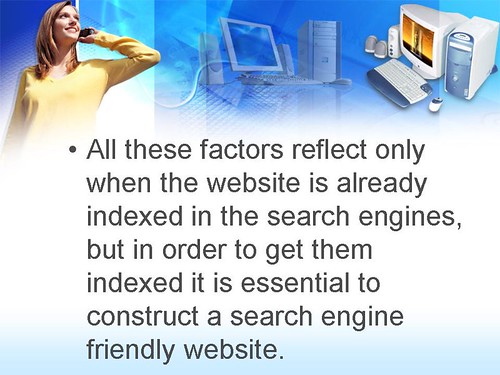Search engine optimization (SEO) is using strategies and methods to make your website enticing to search engine crawlers. Because search engine rankings are key to driving traffic and sales, SEO has become a very popular service. There are those who would say that SEO is best left to the professionals. These people are not right.
Keyword density is important when optimizing an internet page for various search engines. No more than twenty percent of your content should consist in keywords.
It is important to be patient while enduring the process of boosting your SEO. You can not build up huge traffic overnight. It often takes month for a site to start seeing positive SEO results. Just like in a physical business, it takes time to build up a name.
Research their previous experience, and how long they have been working in this field. Be sure you are aware of any risks, so that you are in a position to make a knowledgeable determination based on the facts.
Anchor Text
Make sure you select relevant keywords to use in your anchor text when posting an internal link. Just typing “click here” followed by linking to that term, will not help your search rankings. If you use the correct keywords in your anchor text, search engine spiders will be able to locate your content quickly.
As you develop URL monikers for individual pages, keep in mind that spiders cannot interpret session id titles or other similar strings of characters. Search engines won’t get anything out of this, so make sure that your URLs have meaningful language and keywords.
Request that a non-profit organization or an educational website link to the content on your site. Any reputable site that links to your website will help you greatly when it comes to ranking with search engines. Always provide the best in content and verifiable information. When you do, reputable websites will feel comfortable featuring your website. You need to publish information that is high-quality and informational.
Site Map
Including a site map on your website is key to any search engine optimization process. Site maps make it significantly easier for search engine crawlers and spiders to access every webpage on your website. If it’s a large website, it may have to have more than one site map. It is important to keep the amount of links per map to under 100.
After you carefully determine which key-phrases you will “sprinkle” throughout your website, make sure to include them in your web page title. Find clever ways to incorporate keywords in your titles, so that you engage both the search engines and the readers. Making your URL descriptive of your type of business will help it be found, even when it is new and your name is not well known.
Use a site map to help boost traffic to your website. A site map can link your web pages together. Visitors will find the links on your site so it will drive traffic to your other pages.
Include transcripts for your site’s videos and audio in order to help your rankings. When you offer these transcripts, search engines can then categorize your content and position it properly in its listings.
Search engine optimization is a complicated subject, but it doesn’t have to be completely opaque to the aspiring novice. Doing your own SEO is possible if you follow the suggestions previously given. More customers can be right around the corner.
